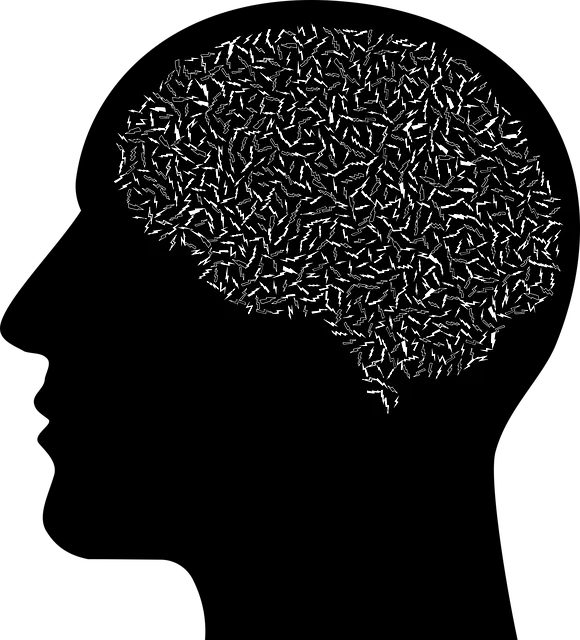Golden Kaiser Permanente offers a comprehensive mental health coverage package featuring crisis intervention services. This approach provides immediate support, evidence-based therapies like cognitive-behavioral therapy, and coping mechanism coaching to stabilize individuals in severe distress. Their holistic model emphasizes self-care routine development, effective communication strategies, and proactive mental well-being strategies to reduce anxiety, promote healing, and empower members to lead fulfilling lives. By proactively recognizing crisis indicators, such as behavior changes and emotional distress, and implementing swift action guidelines, Golden Kaiser Permanente ensures accessible care for psychological emergencies. Post-crisis care focuses on fostering resilience, emotional stability, and improved coping mechanisms for long-term recovery and enhanced quality of life.
“In times of crisis, effective intervention can be a life-saving measure. This article offers a comprehensive guide to navigating these challenging situations, focusing on strategies and resources available through Golden Kaiser Permanente’s mental health support services. We’ll explore key aspects, from recognizing distressing signs and symptoms to immediate response techniques and post-crisis care. Understanding when and how to intervene is crucial, especially with the valuable mental health coverage provided by Golden Kaiser Permanente. Equip yourself with these insights to foster long-term wellbeing.”
- Understanding Crisis Intervention: A Brief Overview
- The Role of Golden Kaiser Permanente in Mental Health Support
- Identifying Signs and Symptoms: Recognizing When a Person Needs Help
- Immediate Response Strategies: What to Do During a Crisis
- Post-Crisis Care and Recovery: Supporting Long-Term Wellbeing
Understanding Crisis Intervention: A Brief Overview

Crisis intervention is a critical approach designed to provide immediate support and guidance during moments of severe distress or mental health emergencies. It aims to stabilise individuals, prevent further deterioration, and facilitate their journey towards recovery. The concept behind crisis intervention is to offer a safe space, where individuals can express their feelings, fears, and concerns without judgment, fostering an environment conducive to healing.
At Kaiser Permanente, our mental health coverage encompasses a range of services tailored to address crises effectively. This includes accessing emergency psychiatric care, counselling, and evidence-based interventions such as cognitive-behavioural therapy. We recognise the importance of building empathy within these interactions to create a supportive network around individuals in crisis. Positive thinking is encouraged as a strategy to help individuals reframe their perspectives and cultivate resilience during challenging times. Additionally, our mental wellness coaching programs are designed to empower individuals with coping mechanisms and tools for long-term mental health management, ensuring they receive comprehensive support throughout their journey.
The Role of Golden Kaiser Permanente in Mental Health Support

Golden Kaiser Permanente stands as a beacon of hope and support for individuals navigating mental health challenges. Their comprehensive mental health coverage ensures that members have access to a wide array of services, from therapy sessions to crisis intervention programs. This holistic approach recognizes that mental well-being is integral to overall health, prompting them to prioritize self-care routine development for better mental health among their offerings.
Effective communication strategies are at the heart of Golden Kaiser Permanente’s care model. They encourage open dialogue between patients and healthcare providers, fostering environments where individuals feel safe to express their struggles. By integrating this approach, they aim to reduce anxiety and promote healing. Ultimately, Golden Kaiser Permanente’s commitment to mental health coverage goes beyond traditional medical services, focusing on empowering individuals to lead fulfilling lives through proactive strategies like self-care and effective coping mechanisms.
Identifying Signs and Symptoms: Recognizing When a Person Needs Help

Recognizing when someone needs help during a crisis is a crucial step, often serving as the initial gateway to effective intervention. The signs and symptoms can vary greatly depending on the individual and the nature of the crisis, but several common indicators exist. Behavior changes, such as sudden withdrawal from social activities or extreme irritability, can signal underlying distress. Emotional cues like prolonged feelings of sadness, anxiety, or intense anger may also indicate a need for support. Additionally, physical symptoms like chronic fatigue, insomnia, or changes in appetite could be red flags, especially when accompanied by substance abuse or self-harming behaviors.
Golden Kaiser Permanente mental health coverage offers valuable resources for those in need. The organization’s commitment to providing accessible and comprehensive care ensures that individuals can receive the necessary support, including coping skills development and trauma support services. Mental Health Education Programs Design plays a pivotal role in equipping people with tools to navigate crises effectively. By recognizing these signs, individuals can take proactive steps, reaching out for help before situations escalate, ultimately fostering resilience and recovery.
Immediate Response Strategies: What to Do During a Crisis

In the heat of a crisis, swift and effective action can make all the difference. Immediate response strategies are crucial for addressing emotional or psychological emergencies, especially when dealing with mental health issues. According to the Golden Kaiser Permanente mental health coverage guidelines, the initial steps should focus on ensuring safety and stability. This involves assessing the individual’s current state and any potential risks, such as self-harm or suicide attempts. Creating a calm and supportive environment is essential; this can be achieved through simple yet powerful techniques like active listening and validating their emotions.
One effective tool within immediate response strategies is Mental Wellness Journaling Exercise Guidance, which encourages individuals to express their thoughts and feelings. It serves as a means of self-reflection and provides valuable insights for both the person in crisis and professional support systems. Additionally, promoting Stress Management and Coping Skills Development can empower individuals to better navigate future challenges. Simple breathing exercises, mindfulness practices, or guided meditation can help de-escalate situations and offer immediate relief.
Post-Crisis Care and Recovery: Supporting Long-Term Wellbeing

Post-crisis care is a vital aspect of ensuring long-term recovery and wellbeing for individuals affected by traumatic events. According to Golden Kaiser Permanente mental health coverage guidelines, supporting clients during this critical phase involves addressing not just immediate symptoms but fostering resilience and emotional stability for sustained periods. This includes implementing strategies that enhance emotional regulation and promote a confidence boosting mindset, which are essential components of the healing process.
The focus should be on empowering individuals to navigate future challenges with enhanced coping mechanisms. By prioritizing these elements, the likelihood of long-lasting positive outcomes increases. Resilience building techniques, such as cognitive reframing and mindfulness practices, can equip individuals with valuable tools to manage stress and adversity effectively, contributing to improved mental health and overall quality of life post-crisis.
In light of the above discussions, it’s clear that crisis intervention strategies play a vital role in supporting individuals’ mental health and well-being. Organizations like Golden Kaiser Permanente are crucial in providing comprehensive mental health coverage and care, from immediate response to long-term recovery. By recognizing signs and symptoms early, we can effectively navigate crises and foster resilient outcomes. Understanding these strategies is essential for both professionals and those seeking support, ensuring that help is readily available and accessible during challenging times.






